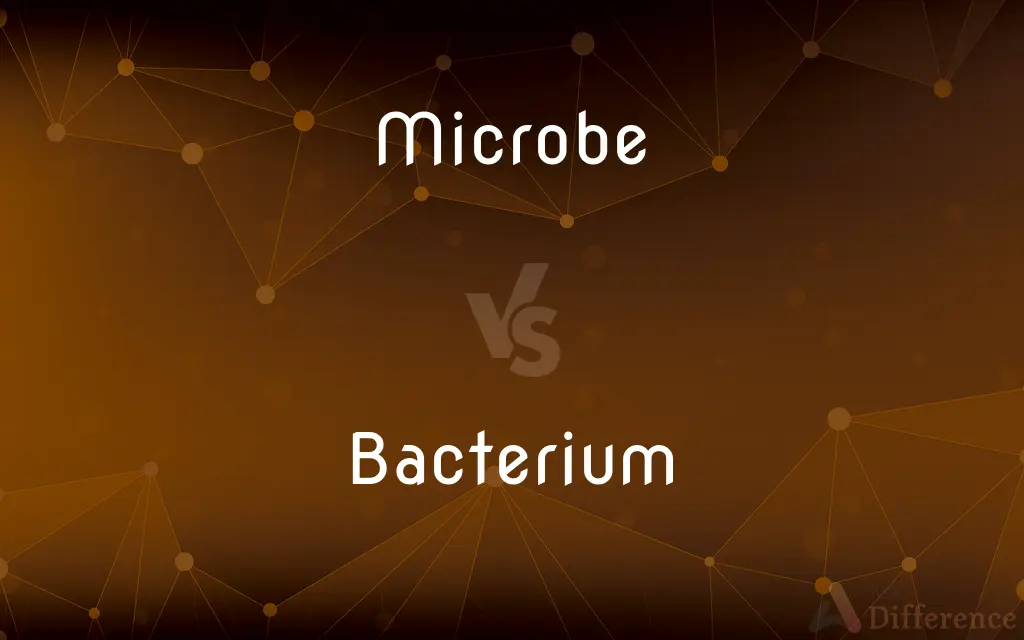Microbe vs. Bacterium — What's the Difference?

Difference Between Microbe and Bacterium
ADVERTISEMENT
Compare with Definitions
Microbe
A minute life form; a microorganism, especially a bacterium that causes disease. Not in technical use.
Bacterium
Any of various prokaryotic microorganisms of the domain Bacteria that may be free-living, saprophytic, commensal, or pathogenic and that vary widely in terms of morphology, oxygen tolerance, nutritional and temperature requirements, and motility.Also called eubacterium.
Microbe
(microbiology) Any microorganism, but especially a harmful bacterium.
Bacterium
Any of the prokaryotic organisms, such as an archaeon. Not in scientific use.
Microbe
A microscopic organism; a microorganism; - particularly applied to bacteria and especially to pathogenic forms; as, the microbe of fowl cholera.
ADVERTISEMENT
Bacterium
(microbiology) A single-celled organism with cell walls but no nucleus or organelles.
Microbe
A minute life form (especially a disease-causing bacterium); the term is not in technical use
Bacterium
A microscopic single-celled organism having no distinguishable nucleus, belonging to the kingdom Monera. Bacteria have varying shapes, usually taking the form of a jointed rodlike filament, or a small sphere, but also in certain cases having a branched form. Bacteria are destitute of chlorophyll, but in those members of the phylum Cyanophyta (the blue-green algae) other light-absorbing pigments are present. They are the smallest of microscopic organisms which have their own metabolic processes carried on within cell membranes, viruses being smaller but not capable of living freely. The bacteria are very widely diffused in nature, and multiply with marvelous rapidity, both by fission and by spores. Bacteria may require oxygen for their energy-producing metabolism, and these are called aerobes; or may multiply in the absence of oxygen, these forms being anaerobes. Certain species are active agents in fermentation, while others appear to be the cause of certain infectious diseases. The branch of science with studies bacteria is bacteriology, being a division of microbiology. See Bacillus.
Bacterium
(microbiology) single-celled or noncellular spherical or spiral or rod-shaped organisms lacking chlorophyll that reproduce by fission; important as pathogens and for biochemical properties; taxonomy is difficult; often considered plants
Share Your Discovery

Previous Comparison
Improvident vs. Imprudent
Next Comparison
Liable vs. Likely














































